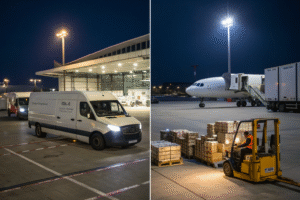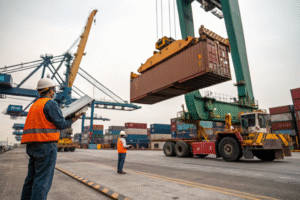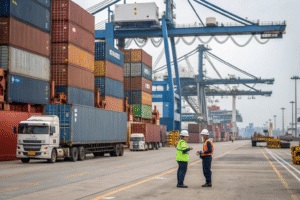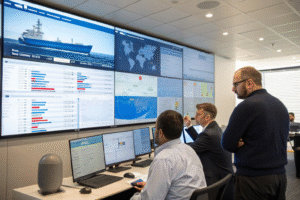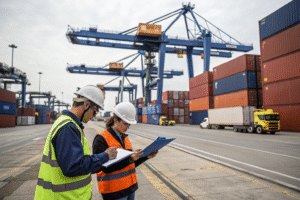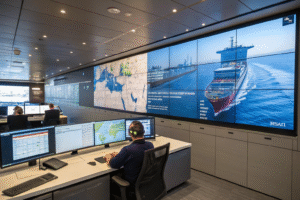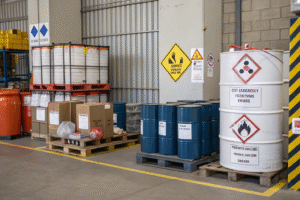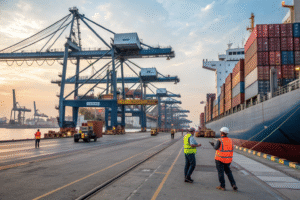Quality assurance is a huge concern for international buyers like Ron, who source large volumes of products from China. From clothing and accessories to custom promotional items, buyers demand consistent quality. But when factories and inspection teams aren’t aligned, costly delays or rejected shipments follow.
Freight forwarders can play a critical role in bridging this gap—by coordinating inspections, managing timelines, and ensuring your quality expectations are met before shipping.
As a seasoned freight forwarder operating between Asia and the U.S., I’ve helped hundreds of buyers streamline their inspection process while preparing for customs and delivery. Let’s break down exactly how this works.
What Role Do Freight Forwarders Play in Inspection Logistics?
The inspection process is often fragmented. Buyers are in one country, factories in another, and third-party QC firms somewhere in between.
Freight forwarders act as the link between buyers, factories, and quality inspection agencies, managing timelines and access to ensure inspections are done right.
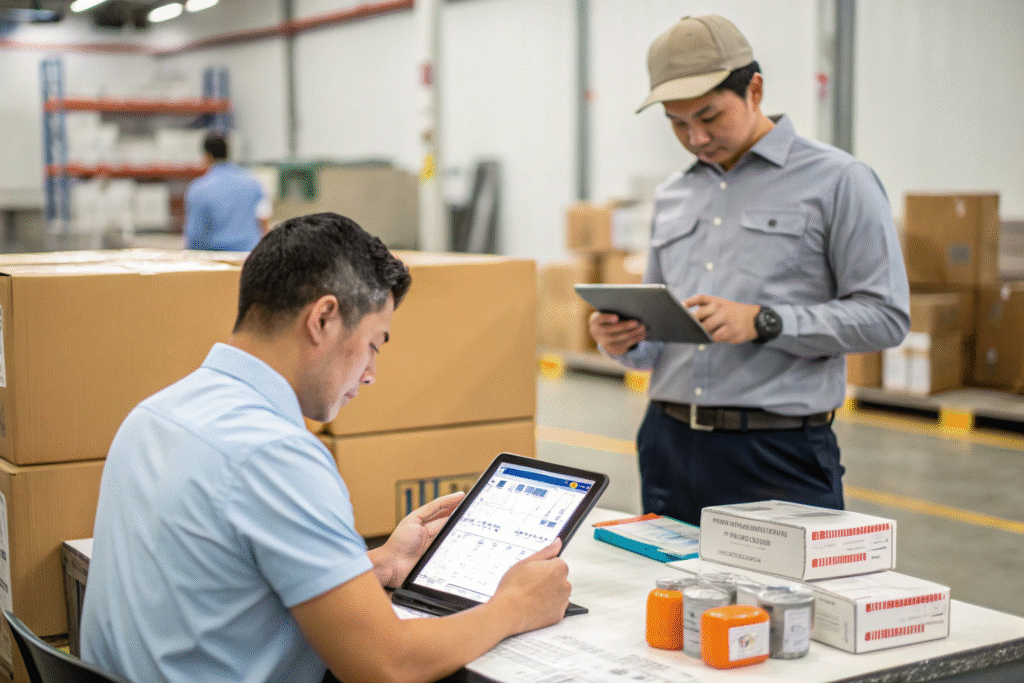
Why Is Pre-Shipment Coordination So Critical?
Many inspections are scheduled last-minute, resulting in rushed work or delayed shipments. We’ve seen shipments held at port simply because QC inspectors were denied access due to miscommunication.
That’s why we coordinate directly with third-party firms like QIMA or Asia Quality Focus, confirming factory readiness and inspection slots in advance. This eliminates guesswork and ensures everything runs on time.
How Do Forwarders Help Align Everyone Involved?
We provide one centralized point of contact. Instead of juggling messages between factory managers, QC teams, and logistics officers, we manage the calendar, notify all parties, and even facilitate factory entry clearance. Tools like Trello and Zoho Projects help us keep everything visible and deadline-driven.
How Can Forwarders Help Vet or Book Qualified Inspectors?
Buyers don’t always know which inspection firms are reputable or available near their supplier. Choosing the wrong one can lead to superficial checks or even fraud.
Freight forwarders with local connections can recommend vetted, certified, and geographically suitable inspection partners.
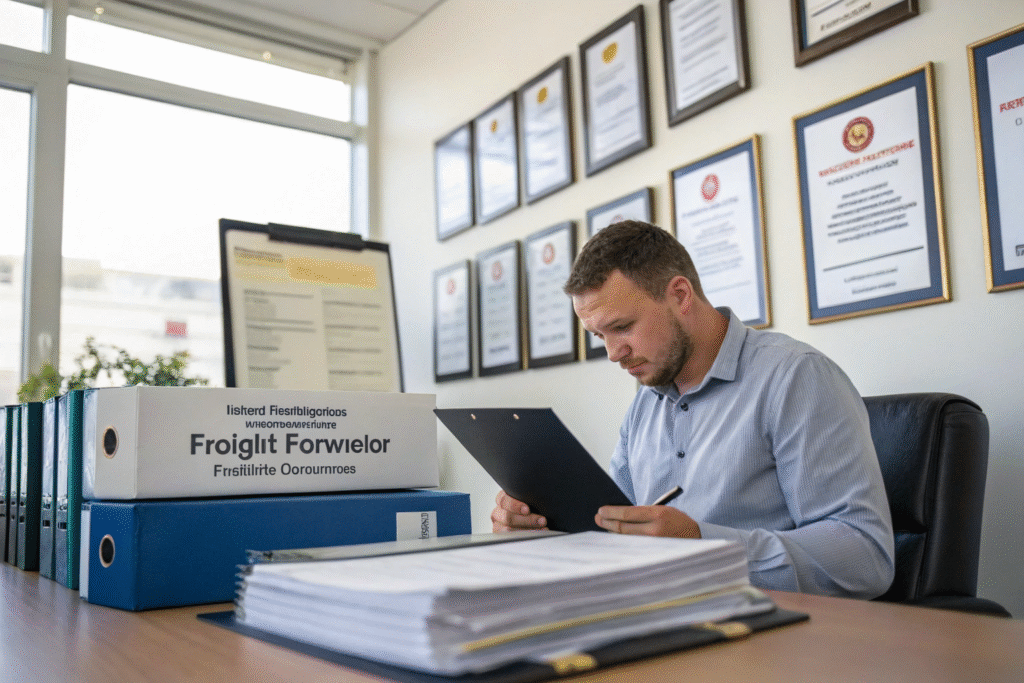
What Makes a Quality Inspector Trustworthy?
Experience, certifications, and independence are key. We check for credentials like ISO 9001 or CNAS accreditation, and we avoid firms that are too cozy with factories. When we recommend groups like Intertek or SGS, it’s because we’ve seen their reports pass scrutiny at U.S. customs.
We also verify background records using platforms like Alibaba Verified Suppliers.
Can Freight Forwarders Negotiate QC Rates?
Yes—especially for repeat shipments. We’ve secured discounted inspections for clients who run multiple batches annually. Since we handle volume, QC firms give us better pricing, and we pass the savings to you. We also monitor billing through InspectionWorks, ensuring there’s no double-charging or hidden fees.
Do Freight Forwarders Facilitate Re-Inspections or Rework?
Sometimes inspections don’t go as planned. What happens if your product fails? If there’s no one local to manage rework, you could face weeks of delay.
Freight forwarders coordinate re-inspections and minor factory rework so goods don’t get stuck or miss critical delivery windows.
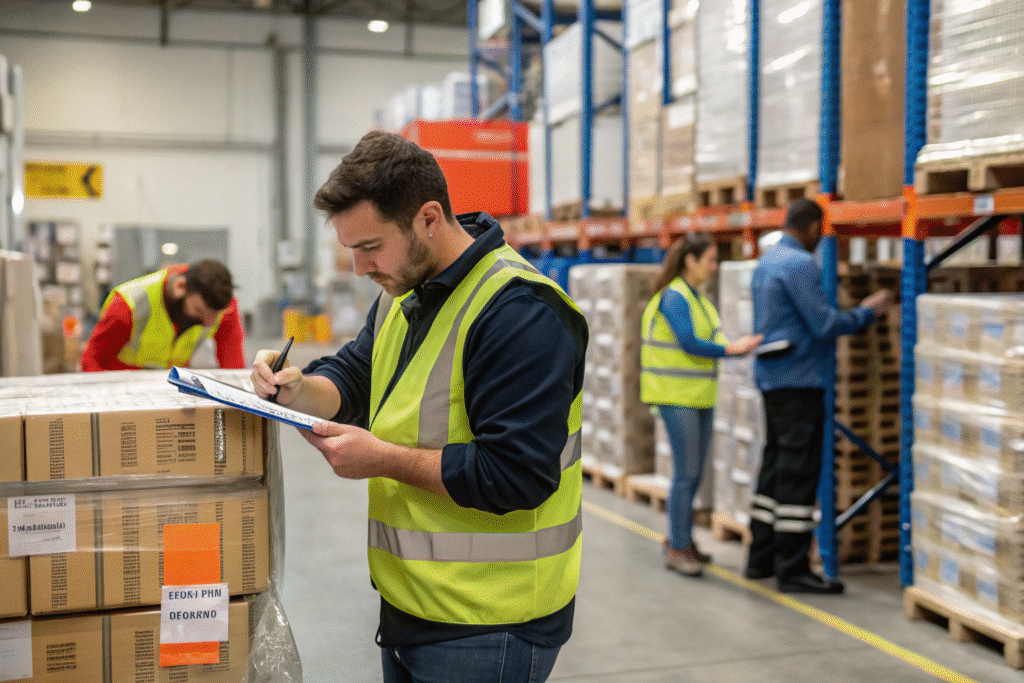
What Happens When Goods Fail the First Inspection?
We notify buyers immediately and arrange re-inspection or supervised rework if needed. For example, a U.S. client’s accessory shipment once failed due to broken stitching on 10% of the items. We arranged factory fixes within 72 hours, booked the QC firm again, and still met the sailing schedule.
We log all corrections and updated results using platforms like QualityInspection.org or iAuditor.
How Is Inspection Documentation Managed?
We upload all inspection reports, photographs, and correction records into a shared cloud folder—usually via Google Drive or Box. This ensures clients and customs brokers can access accurate documents instantly. It also helps support trade claims or chargebacks if there’s a dispute.
How Do Forwarders Integrate QC With Overall Shipping Plans?
The best shipping strategy aligns inspection with pickup and customs deadlines.
Freight forwarders synchronize QC timelines with freight schedules so goods pass inspection just in time for consolidation and shipping.
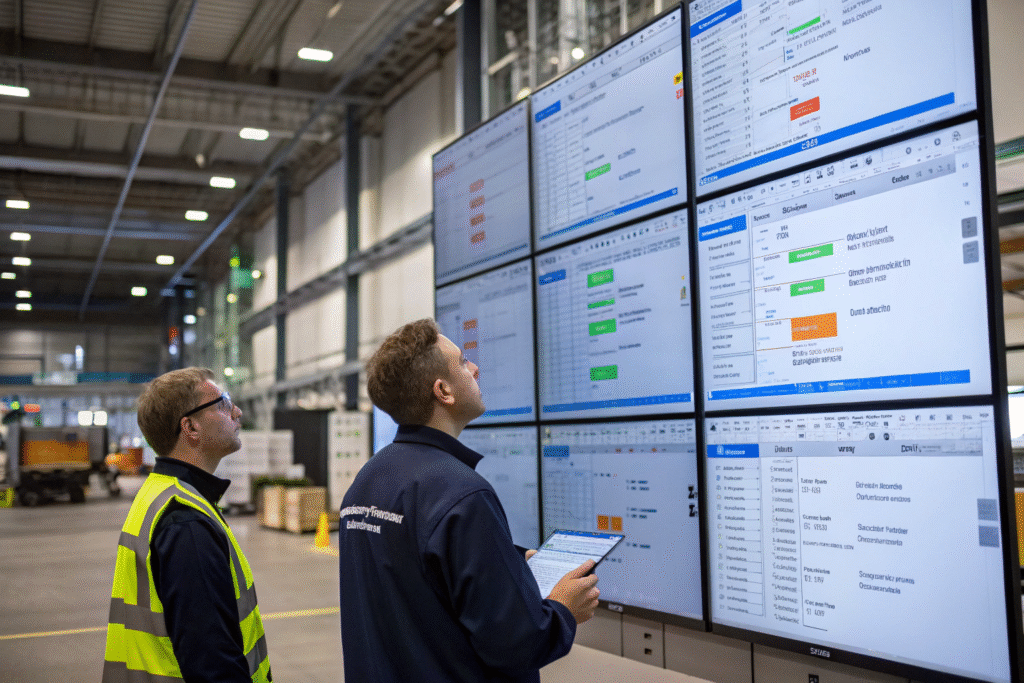
Can QC Be Built into DDP or Door-to-Door Solutions?
Absolutely. For DDP shipments, we integrate inspection into the logistics chain—whether at the factory or consolidation warehouse. That way, when Ron books freight to the U.S., we ensure inspections happen a day or two before loading. This approach reduces warehouse dwell time and improves customs clearance speed.
We track this using systems like CargoWise and notify customers with status updates via Slack integrations.
What Are the Benefits of Combining Inspection and Freight Planning?
You save time, money, and risk. Instead of paying for rushed inspections or late customs filings, everything moves like clockwork. A coordinated timeline lets us manage full-container loads (FCL) or less-than-container loads (LCL) based on when products pass QC.
For example, one client saved $2,500 per month by syncing inspection 48 hours before scheduled port loading using our advance scheduling model.
Conclusion
Buyers sourcing from Asia need more than good freight rates—they need reliable coordination. That includes managing factory inspections, hiring certified quality agents, and aligning inspection timelines with shipping.
At GeeseCargo, we go beyond transport—we bridge the communication gap between you, your factory, and your quality control partners. Whether it’s coordinating rework, uploading inspection results, or booking certified inspectors, we take the load off your plate—literally and logistically.
If you're tired of miscommunication and inspection-related delays, let’s talk. We’ll ensure your goods not only ship fast—but ship right.

